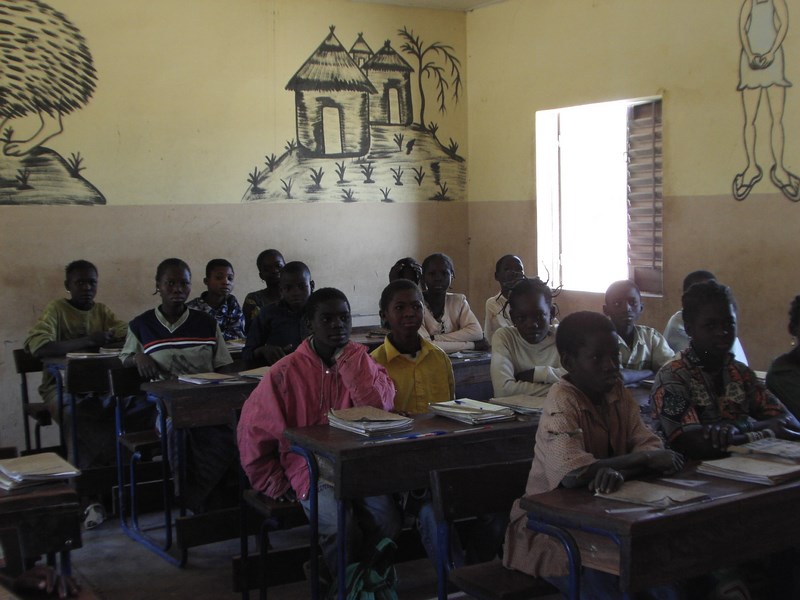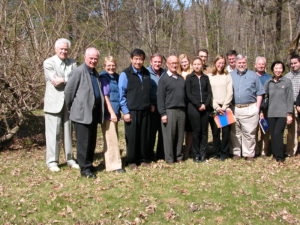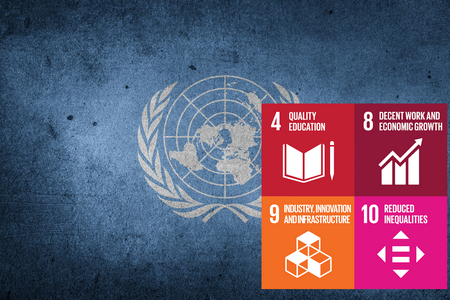Highlighting Key Ideas expressed in book, articles and meetings of the Circle
Culture and the arts play fundamental roles in societies’ development and their mutual relations. Artists and works of art are essential to harmonious societies and play strong roles in opposing tyranny. They can give humanity the courage to face many complex challenges. In expressing the raw emotion integral to the human experience, art can connect individual experience to social phenomena. While presenting the unique experience of the creator, it may touch universal chords that unify.
Language and history encapsulated in the written word, visual media, theater and dance are powerful tools connecting humankind to others, to nature and the universe on primal and cerebral levels.
Education is the key to human flourishing. It is essential that cultural appreciation and the humanities be strong elements in its curriculum. The languages of art and culture vital to the art of living help identify and teach universal values and in turn find their place in the foundation of harmonious, mutually supportive societies— that strive to meet the material and spiritual needs of its citizens.

There is another matter which should be on our minds and for which I ask the concern of the Circle. That is the error of measuring the success of all life in economic terms.
Measuring all progress in economic terms, we over look the great achievements of much poorer societies in the past.
The art of the Renaissance which we view and enjoy was the product of communities far inferior in wealth to our own.
William Shakespeare, as I’ve else where said, was the product of a society with by present standards, a very low Gross Domestic Product.
The great artistic talent of our time is now employed in advertising goods and services. We must ask ourselves whether our economic success is matched by equivalent achievement in the arts and in the sciences.
John Kenneth Galbraith [from his message to the Triglav Circle]
The Humanities and the Sciences : Alternative and Mutually supporting Sources of Knowledge
The Relationship Between the Humanities and the Sciences: Some Observations
by Barbara Baudot
The humanities evolved over centuries. Modern humanities emerged in the 14th/ 15th centuries focusing on philosophical thinking and moral concerns rather than religion. It was reflected in a number of studies–philosophy, history, literature and the arts. The sciences emerged gradually during the 15th – 17th centuries. This so-called ‘scientific revolution,’ was preceded by developments in mathematics, physics, astronomy, biology and anatomy….



The Relationship Between the Humanities and the Sciences
by Philippe Roch
Robert Hainard (1906 – 1999) who combined these three experiences in a holistic view of the relationship between Humankind and Nature.
“Our scientific knowledge is to reality what a cadastral map is to a landscape.”
“Science does not know reality in its entirety, but describes a mechanical model based on it. “
“If for millennia we have relied on our reason to distinguish ourselves from animals, the time has come to invoke our animal faculties to distinguish ourselves from robots and justify our existence.”
“Our unilaterally scientific, rationalized, mechanical, and specialized era pays for these advancements with a terrible regression of global faculties.”
“The artist perceives through sympathy. He puts himself in the place of things, from the inside. “So I became the beast, I embraced its movement and it is in the memory of my muscles, even more than in that of my eyes, that I found it again.”
Nature: Materialism versus Traditional and Religious Thought
by Arthur Dahl
We need something more to provide an ethical framework for science to contribute to good rather than evil. With the decline of religion in the West, that role has been played by the secular humanities, but as many intellectual traditions have shown, with mixed success.
Much of what we appreciate in the humanities has its roots in higher dimensions of human experience, in finding ways to express spiritual qualities as our true reality. Even the environment can be seen as reflecting higher qualities of cooperation and reciprocity, and the experience of nature is often defined as spiritual. This reality does not contradict the reality studied by science but is complementary to it.
The Rule of Saint Benedict and the Liberal Arts and Sciences
by John Fortin
Over the course of several years in the 530’s and 540’s, Saint Benedict composed and revised a rule for the monks of the monastery of Monte Cassino. The community, which may have numbered up to one hundred, was comprised of Christian laymen like himself, seeking God according to a monastic manner of life.[1] It was an agrarian society and required hard labor in working the land to provide sustenance for a predominantly self-sustaining community. That being the case, just how much learning and education was really necessary for the monks ?In the Prologue, for example, Benedict wrote, “we intend to establish a school for the Lord’s service” (v. 45), but this is the only time in the Rule that he uses the term schola, school. He does not refer to a curriculum or program of instruction, to a pedagogy or method of teaching.
Challenging society : Some Thoughts on Artificial Intelligence
by Dennis Mc Donald
Technological development has always been subject to a mixed reception of fear – fear of its impact on a people’s way of life or the inability of comprehend the new or threats to livelihood – and promise – promise of an improvement in daily life, expansion capacities to act, a lessening of life’s burdens. However, several developments over the last century (or two) have raised serious questions.
A Requiem for Multilateralism in an Era of Increasing Interdependence
by Nitin Desai
In the halcyon days of multilateralism during the 1990s, the prospects for strengthening global cooperation looked very promising due to the political changes in Russia and the Eastern bloc states and the liberalism in Western countries. All of this seems to be changing. We are back to an assertive Russia, and now also a powerful China, and witnessing the death of liberalism or attenuation thereof in a number of Western countries.
Articles and Manuscripts presented to the Circle
Meetings of Circle

Education and the Ethical and Spiritual Dimensions of Life in Society
Meeting of the Triglav Circle at 100 Acres, Manchester NH – March 2002
Should educational aims be reassessed in a globalizing world? According to Samuel Hazo, State Poet of Pennsylvania and professor emeritus at Duquesne University:
“College was once defined as a time when students were briefly absented from the present in order to discover the past so that they could more wisely face the present in the future…The current collegiate goal is not the beginning of wisdom but proficiency (in marketable skills), not breadth of knowledge but adjustment, not cultural understanding but social (upward) mobility. In brief, the goal of graduating free men and women (intellectually free) has been replaced by giving degrees to instantly employable trainees. What if anything is wrong with this? Nothing is wrong with it, if you believe that it’s quite acceptable to graduate instant earners who can’t write, who can’t understand and feel no need to understand history, literature and even geography of their own country, who don’t know nor care to know another language (70% of the graduates of America’s 3,000 or more colleges and universities earn degrees without being required to study a foreign language), and whose main goal in life is not regenerating or contributing to their society, but retiring from it in comfort as early as possible.”
— excerpted from an article in the Pittsburgh Post-Gazette

Seeking Harmonious Society and Multiple Modernities,
International Symposium: Beijing, China: 23-24 June 2006
Whether one attributes concept of universal values to human nature or to the convergence of the teachings of great philosophies and religions, or to both, there is little doubt that the moral compass of peoples of different traditions and cultures is fundamentally the same. Perceptions of right and wrong, or of the beautiful and the ugly, do not dramatically differ from one continent to another. In that sense the distinction between Asian, or European, or American, or African values, and universal values is artificial.
But such syncretism, to be at the same time respectful of freedom and diversity and exempt from moral laxness and relativism, implies a fairly short but rigorous “selection” of what are truly universal values. Difficulties with the notions of shared understanding of the human rights expressed in the Universal Declaration are partly due to a politically motivated interpretation and extension of such rights in the domain of political arrangements which should have no claim to universalism or in-temporality. But then, is this presumably shared core of values a sufficient foundation for the construction of harmonious societies
Highlights
Music, literature and the soul of society
Understanding and appreciation of the "Other"
Roles of art in international relations
Moral and spiritual education
Education and promotion of world peace
Finding commonalities among world's religions

